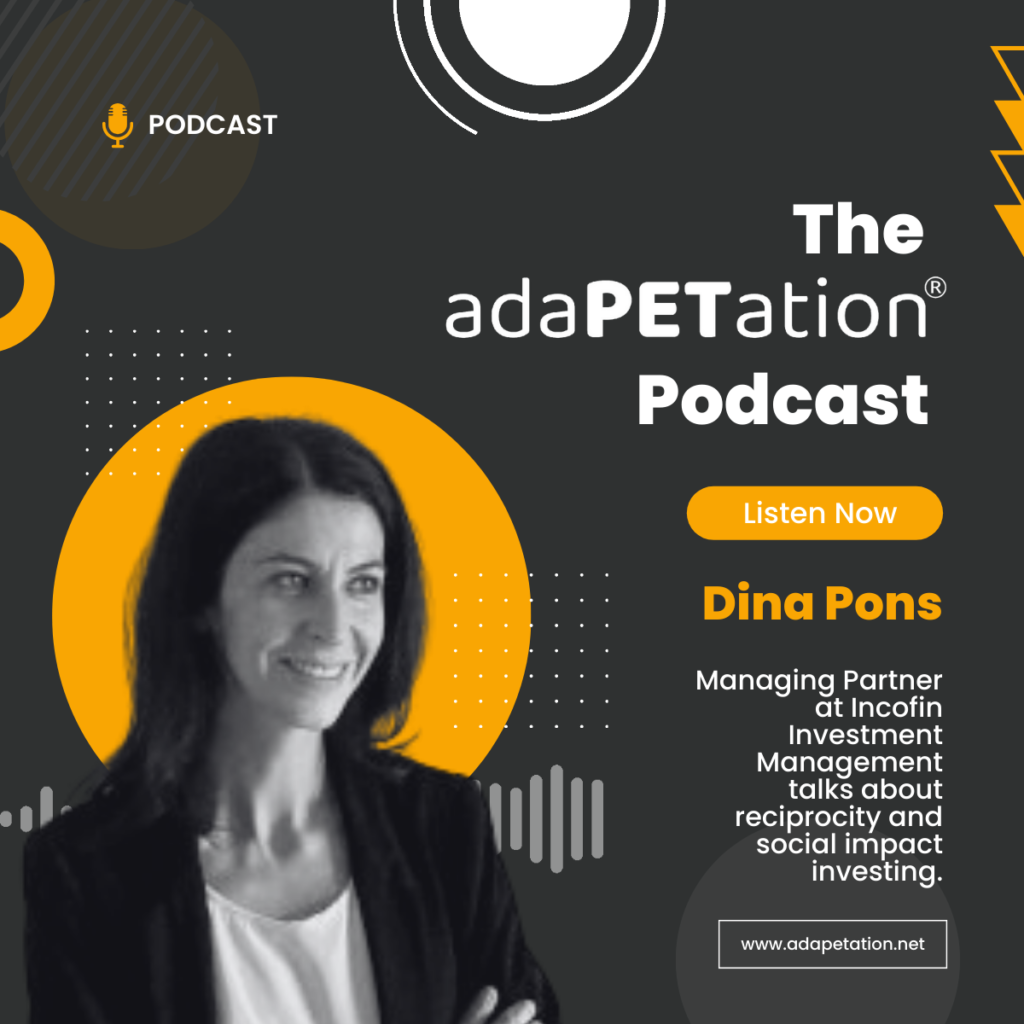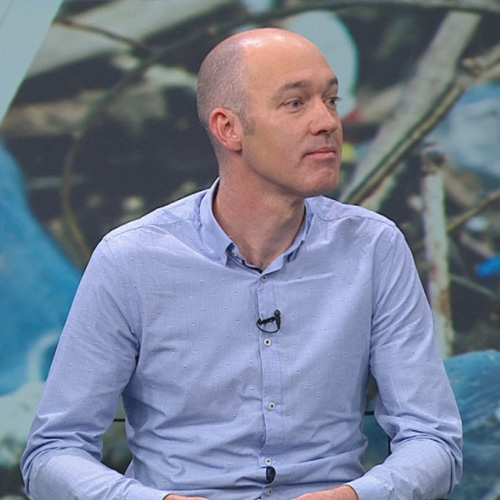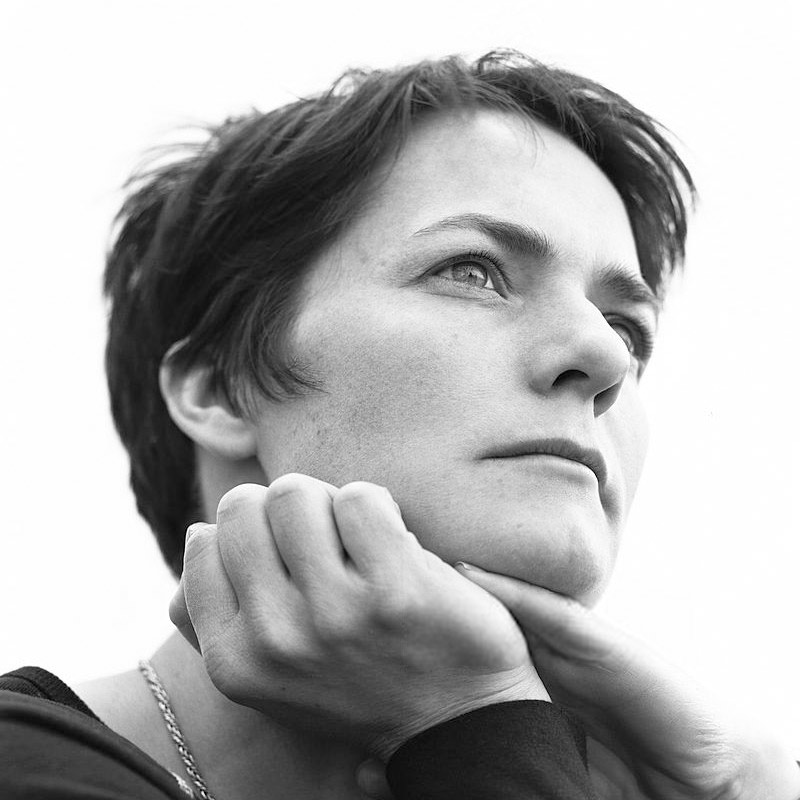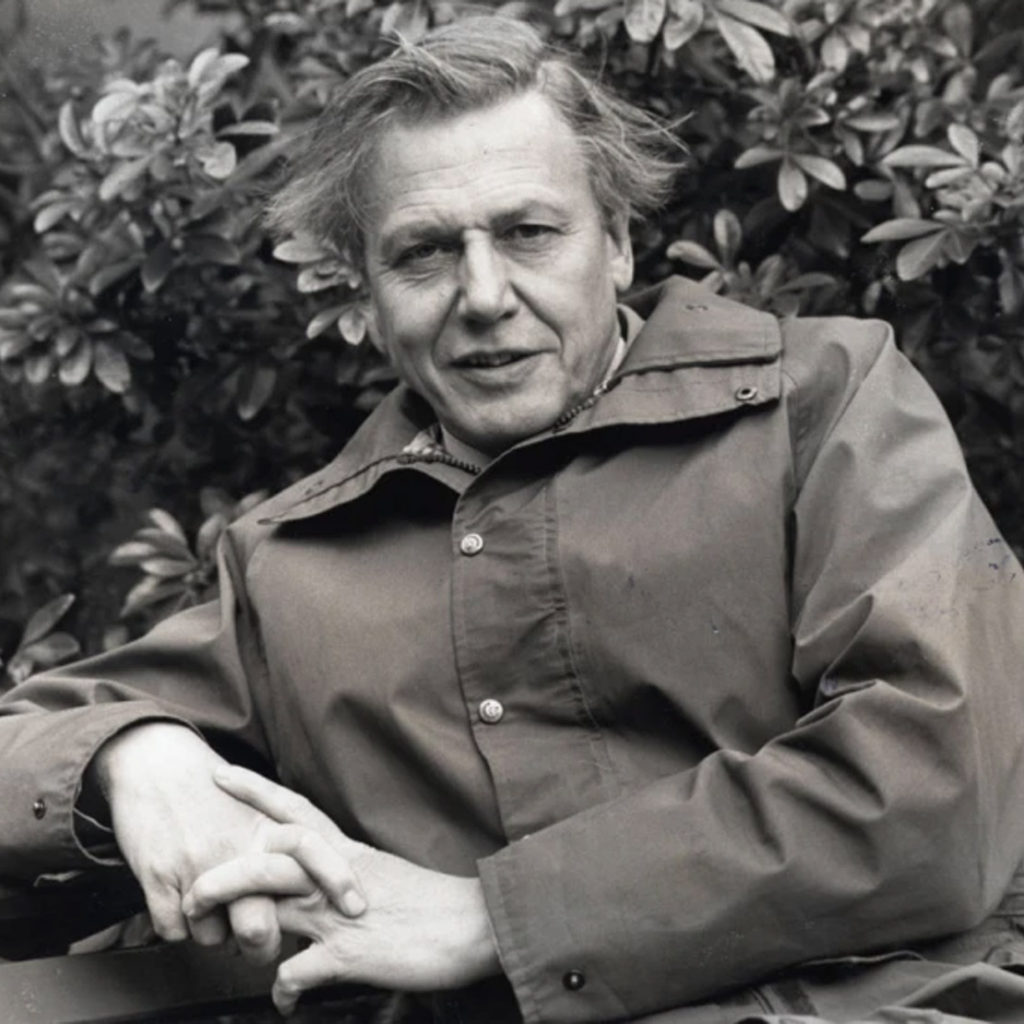
Dina Pons, managing partner of Incofin reveals how PET bottle giants and water access initiatives are collaboratively shaping a healthier future for millions. Discover the innovative strategies and mutual benefits driving the crucial global mission for accessible, clean water.
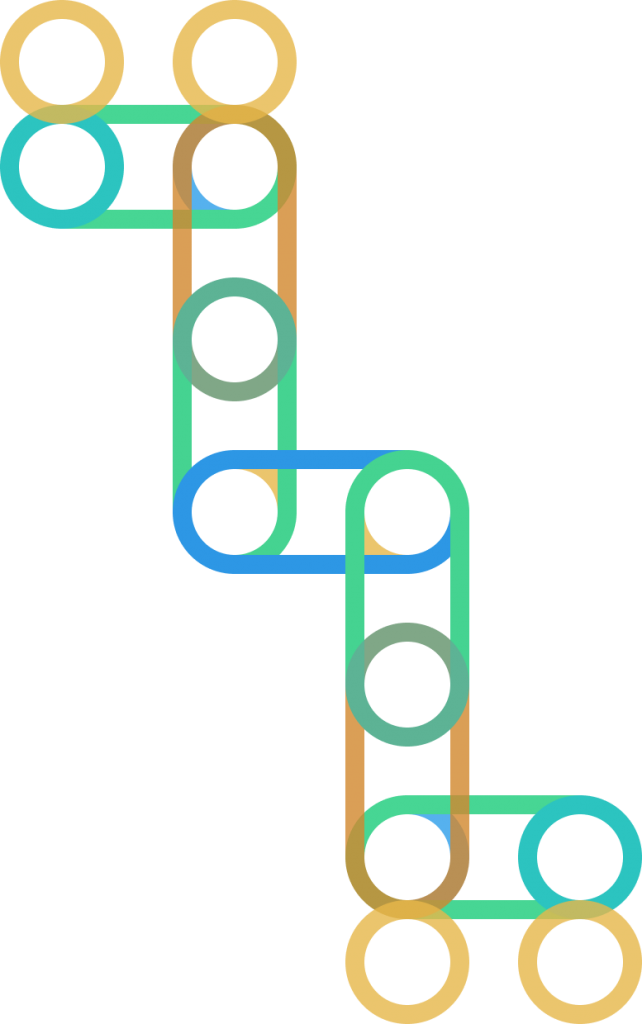
In an era where sustainable solutions are more crucial than ever, the conversation around water accessibility is taking a pioneering turn, propelled by an initiative led by Dina Pons, managing partner of Incofin Investment Management. In a recent interview with the adaPETation® Podast, Pons pointed to how the reciprocity between the PET plastic industry and water access initiatives is carving new pathways for global change. This inspirational PET-powered journey to bring fresh drinking water to 30 million people is only just beginning.
The critical role of PET in water distribution
We all know the vital role PET plastic plays in the global distribution of drinking water. Lightweight, durable, and recyclable, PET bottles have become an indispensable means of water packaging and transportation, especially in regions where tap water is not readily accessible or safe to drink. How to get water to the people that need it most is the mission of the Water Access Acceleration Fund (WAF), a coalition of powerful investors seeking to invest €51m in impactful solutions, mainly in Asia and Africa. “We’re looking at like-minded, local, private sector-led water access solutions.” Leading figures in the coalition include Danone, BNP Paribas and the International Development Finance Corporation.
Innovative approach to water access
Led by Incofin, W2AF showcases innovative thinking in addressing water scarcity. “It’s the fact that today you have more than 2 billion people around the world who do not have access to safe drinking water,” Pons points out, emphasizing the scale of the challenge and the opportunity for the PET industry to contribute meaningfully.
In a world where billions struggle to access clean water, the fund has already found its first investment and is making significant strides to creating impactful change, particularly for low-income populations. We talked about how W2AF’s innovative model is making a difference.
Focusing on financial return and social impact
WAF operates on a dual-focus model: ensuring financial return while maximizing social impact. Pons explains, “We aim to honor our promise to have some financial return. Second, we measure impact.” This approach strikes a balance between being financially sustainable and achieving the fund’s core mission of improving water access.
The key metrics WAF is using to measure its impact include the number of liters of water provided and the reach among low-income populations. As Pons points out, “If the liters of water offered are too costly for a person living below $8 a day, then it’s not impactful.” This metric ensures that the fund’s efforts are truly accessible to those who need them most.
Beyond water access: social and economic change
The positive ripple effects of WAF’s work extend far beyond water access. Pons highlights how access to nearby clean water can liberate time for women and girls, traditionally tasked with fetching water. This change can lead to increased opportunities for education and employment, thereby enhancing gender equality and community development.
Addressing climate change
W2AF is also acutely aware of its environmental footprint. Pons discusses the importance of reducing plastic consumption and wastage in water distribution. The fund encourages the use of efficient, recycled containers and supports the transition to renewable energy sources in water purification processes, showcasing a commitment to climate-conscious practices.
Empowering local entrepreneurs
Central to W2AF’s strategy is supporting local entrepreneurs who understand their communities’ needs. By providing resources and guidance, the fund helps these entrepreneurs create sustainable and culturally appropriate water access solutions.
The W2AF exemplifies how targeted investment can create, powered by PET can bring with it widespread social and environmental benefits. By focusing on affordability, accessibility, gender equality, and environmental sustainability, W2AF is not just providing water; it’s fostering healthier, more equitable, and resilient communities. As she eloquently puts it, “These are the types of indicators that will track on the impact side…that will allow us to measure our success as a true impact investor.”
W2AF’s journey highlights the power of thoughtful, inclusive investment strategies in addressing global challenges. It’s a ray of hope and a model for others to follow in the pursuit of a more equitable and sustainable world.
Leveraging PET industry’s involvement
The PET plastic industry, often in the spotlight for environmental concerns, has emerged as a crucial collaborator in addressing these water access challenges. One of the founding investors is water giant Danone, highlighting the synergy between these sectors: “We’re not just financing public utilities… We’re backing local, private sector-led water access solutions.” This approach represents a shift from conventional methods, underscoring the potential of collaboration between the PET industry and water initiatives.
Pons emphasizes the concept of ‘patient capital’ in impact investment, which aligns perfectly with the PET industry’s potential for long-term environmental stewardship. “It’s about respecting and promoting the original social and environmental intent,” she explains. This principle resonates deeply in the context of sustainable water access, where the PET industry’s involvement can foster long-term environmental and social benefits.
Integrating different sectors like PET plastics and water access brings its challenges but also opens up new opportunities. “One of the biggest obstacles is making stakeholders from different worlds meet and understand each other,” says Pons. This sentiment captures the essence of forging new paths in water access, where mutual understanding and collaboration are key.
Her vision extends beyond business transactions to create a sustainable and equitable future that will free up millions of people from the restraints of having to fetch water on a daily basis. She advocates for an economic system aligned with environmental and social welfare and calls for “moderation, mindfulness, and a cultural shift in attitudes towards consumption and growth.”
Conclusion: a collective mission
Pons’ insights not only highlight the challenges in water access but also offer a blueprint for collaborative efforts, particularly with the PET plastic industry. As we transition from PET to potable, the interdependence of industries becomes clear – not just for mutual benefit but for a sustainable global future. Pons’ call for action resonates with urgency and hope, inviting industries, investors, and individuals to join this crucial mission.
Keiran Smith’s journey, as he candidly shared on the adaPETation podcast, is nothing short of awe-inspiring. “The background story is really about me being a banker in Zurich,” he began, setting the stage for a profound transition from banking in Switzerland to redefining waste management in Kenya. This journey wasn’t fueled by mere ambition, but by tangible “lightbulb moments.” He saw the potential in Switzerland, where recycling systems had been perfected. The real epiphany? Discovering the vast opportunities lying in Kenya, where waste, or rather ‘value streams,’ were everywhere, but their potential largely untapped.
The narrative of today’s waste crisis is marked by dire images – landfills, polluted oceans, and the marginalized community of waste pickers scrambling for livelihoods. However, Mr. Green Africa, under Smith’s visionary leadership, has turned the story on its head. He asks, “Can we create a fair system for such community or for such people?” Instead of viewing waste as an insurmountable challenge, Keiran views it as an untapped opportunity, emphasizing, “waste stream or waste value streams, different types, plastic, aluminium, glass and so on. They have a value.”
Tomorrow’s Vision of a CIrcular Economy is Built on Fairness
Tomorrow’s vision of a circular economy, as envisaged by Mr. Green Africa, is one of inclusivity and local validation. Smith emphasizes two core principles: creating a transparent and inclusive system to remunerate waste pickers, and ensuring local validation so that value is captured and redistributed within the country of origin. These aren’t mere words; Mr. Green Africa is putting these into action, operating with about 4000 waste pickers and trading around 4000-5000 tons every year.
“We have many shops in different parts of the country, buyback centers or trading points we call them, where we have an employee of ours who trades with the community,” Smith detailed. The process ensures that waste pickers are fairly compensated and are part of a formalized and dignified system. This is in stark contrast to the prevalent informal systems where price unpredictability and unreliability in payments persist.
As we stand at the crossroads of today’s waste crisis and tomorrow’s potential circular economy, it’s pioneers like Mr. Green Africa that light the way. The company’s B Corp status stands as a testament to its commitment, with Smith noting, “Mr. Green, Africa as a B Corp, the way we’re doing business, because we’re buying at a higher price from waste pickers, in itself is impact.” It’s not about indirect efforts or additional CSR stories for them. It’s about embedding impact within their core business model.
The pathway to a circular economy is far from straightforward. It demands resilience, vision, and a drive to transform challenges into opportunities. But with companies like Mr. Green Africa at the forefront, and leaders like Keiran Smith championing change, the future looks more promising.
“Every time we can show that it is possible, we communicate about it,” Keiran shares, embodying the spirit of Mr. Green Africa. As they continue to push boundaries, demystifying myths and proving possibilities, they inspire countless others to join the journey towards a circular, sustainable, and inclusive tomorrow.
JOIN THE MOVEMENT: TRANSFORMING LIVES WITH THE WATER ACCESS ACCELERATION FUND
You have the power to make a profound difference in the world. As leaders in the PET plastic packaging industry or as forward-thinking social impact investors, your involvement in the Water Access Acceleration Fund (WAF) can be a game-changer in the global fight for clean and accessible water.
WHY YOUR PARTICIPATION MATTERS
Direct Impact on Lives: Your support will help bring clean, affordable water to millions who currently lack this basic necessity. By backing W2AF, you’re not just investing in a project; you’re investing in human potential and dignity.
Environmental Stewardship: As a PET packaging company or social impact investor this is your opportunity to contribute positively to the environment. By supporting sustainable water distribution methods, you play a crucial role in reducing plastic waste and promoting recycling initiatives.
Economic Empowerment: Your investment will empower local entrepreneurs in developing regions, creating sustainable businesses that cater to the water needs of their communities while generating local employment.
HOW YOU CAN MAKE A DIFFERENCE
Invest in the Fund: Provide the much-needed capital to scale up the initiatives that WAF supports. Your investment will have tangible returns, both financially and in terms of social impact.
Leverage Your Expertise: Use your industry knowledge and networks to enhance the efficiency and reach of water distribution solutions. Your insights into sustainable packaging and distribution can revolutionize how water is delivered to those in need.
Advocate for Change: Use your voice and platform to raise awareness about the global water crisis and the solutions that WAF is implementing. Your advocacy can mobilize more support and create a larger impact.
YOUR ROLE IN A LARGER STORY
By joining the Water Access Acceleration Fund, you become part of a larger story of hope, resilience, and innovation. You are not just responding to a global crisis; you are actively shaping a more sustainable and equitable future.
TAKE THE FIRST STEP TODAY
Contact us to learn more about how you can contribute to this life-changing initiative. Together, we can turn the tide on the global water crisis and build a better tomorrow for millions.
Be the change. Join us in making water accessible for all.
For more information contact INCOFIN.
Share it
THE HISTORY OF PLASTIC
Throughout the history of plastic, PET has been crucial in keeping food fresh with lightweight and durable packaging solutions that have helped reduce food waste for almost a century. Learn all about the invention of plastic and the important role it has played feeding people and saving the lives of humans and elephants in the adaPETation® timeline of the history of plastic.

